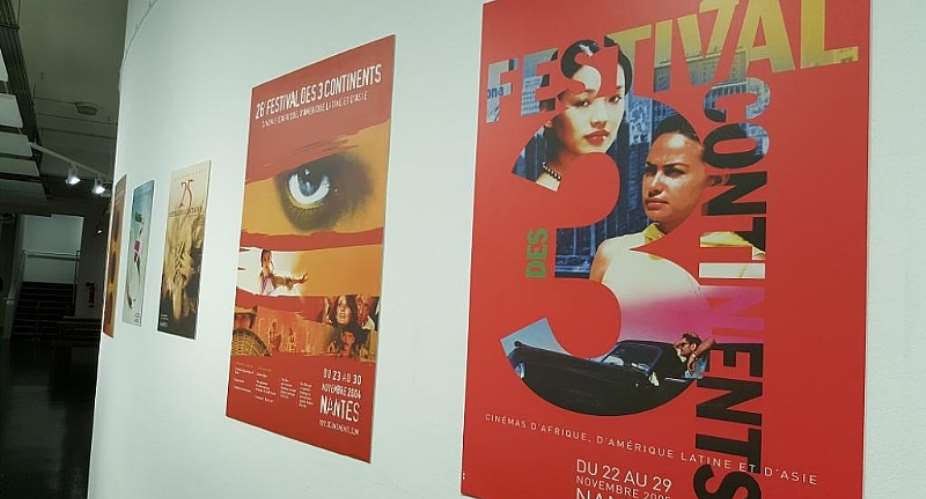Twelve films make up "Taipei Stories", a special section at this year's 3 Continents Festival. Alongside films from the most well known Taiwanese directors are older ones, dating as far back as 1964, that French audiences might be discovering for the first time.
In addition to films from the late Edward Yang (Taipei Story, 1985), Hou Hsiao-Hsien (Cheerful Wind, 1981) or Tsai Ming-liang (Goodbye, Dragon Inn, 2003), this year's festival also features Early Train from Taipei, directed by Liang Zhe-fu in 1964, and the most recent,The Missing directed by Bu Jian, in 2003.
"It's sort of a history of Taiwan's cinema in 12 films,” explained Jerome Baron, the artistic director of The 3 Continents Film Festival, established in 1979 by the Jalladeau Brothers.
Taiwan and this Festival have had a good thing going for a while.
“In the 1980s at its origins, the festival more or less prompted the discovery of Taiwanese cinema in France, as it underwent a thorough aesthetical revival with the advent of what we might call the 'New Taiwan Cinema' from 1983, '84, '85.”
Baron and his team have continued the close relationship with Taiwan. With the Taipei Film Festival held each July, they have set up a Produire au Sud , or "Produce in the South" workshop.
A more recent change since the 1980s, when Taiwan's international cinema reputation was growing, is mainland China. The People's Republic of China considers Taiwan as its territory, and it has become a force to be reckoned with in the island's film industry.
“Mainland Chinese cinema has a strong influence now in Taiwan obviously. Sometimes it's pressure, but it can be quite positive. Mainland Chinese players often produce Taiwanese films. There are many bridges in spite of everything," says Baron.
Nonetheless, world film expert warns that the power struggle between China and Taiwan is creeping into cinema production.
“Young professionals we meet on the island seem to be pretty unaware of how international co-production works. They are therefore at more of a disadvantage compared to economically powerful China, which is clearly seeking greater influence in Taiwanese cinema.”
Taiwan filmmakers produce commercial films for local consumption, many of them influenced by Japanese or Korean films. Art-house films are out of fashion it seems.
“Why do we see fewer Taiwan films at international festivals. Why are nearly all of them made by Hou or Ang Lee? things are slowing down. Where do they go from here?”
Great Taiwan films of the 1980s and 1990s owe a great part of their inspiration, Baron explains, to the cosmopolitan nature of Taipei at the time, to local history of the civil war that still today divides mainland China and Taiwan, and also to the Japanese Occupation that ended with the end of World War II.
“People who lived in fast-modernising Taipei had come from different parts of China, or from other parts of Asia. Their struggles are the power of those films, and their singularity. Today's generation is completely Taiwanese, born and bred in Taiwan. Defining an identity in a global and modern society is difficult. We see them searching for something profoundly Taiwanese in some of the film scripts we develop with them.”
Taipei Stories, the name of the focus at the 3 Continents Festival, is taken from Edward Yang's 1985 film. He captured social change on the island through apparently simple, family tales. However they were full of meaning about seeking how to bridge a generation gap riven by political history. They also stood out for having a certain all-round measure of beauty and grace that stands the test of time.





 Akufo-Addo commissions Phase II of Kaleo solar power plant
Akufo-Addo commissions Phase II of Kaleo solar power plant
 NDC panics over Bawumia’s visit to Pope Francis
NDC panics over Bawumia’s visit to Pope Francis
 EC blasts Mahama over “false” claims on recruitment of Returning Officers
EC blasts Mahama over “false” claims on recruitment of Returning Officers
 Lands Minister gives ultimatum to Future Global Resources to revamp Prestea/Bogo...
Lands Minister gives ultimatum to Future Global Resources to revamp Prestea/Bogo...
 Wa Naa appeals to Akufo-Addo to audit state lands in Wa
Wa Naa appeals to Akufo-Addo to audit state lands in Wa
 Prof Opoku-Agyemang misunderstood Bawumia’s ‘driver mate’ analogy – Miracles Abo...
Prof Opoku-Agyemang misunderstood Bawumia’s ‘driver mate’ analogy – Miracles Abo...
 EU confident Ghana will not sign Anti-LGBTQI Bill
EU confident Ghana will not sign Anti-LGBTQI Bill
 Suspend implementation of Planting for Food and Jobs for 2024 - Stakeholders
Suspend implementation of Planting for Food and Jobs for 2024 - Stakeholders
 Tema West Municipal Assembly gets Ghana's First Female Aircraft Marshaller as ne...
Tema West Municipal Assembly gets Ghana's First Female Aircraft Marshaller as ne...
 Dumsor is affecting us double, release timetable – Disability Federation to ECG
Dumsor is affecting us double, release timetable – Disability Federation to ECG
